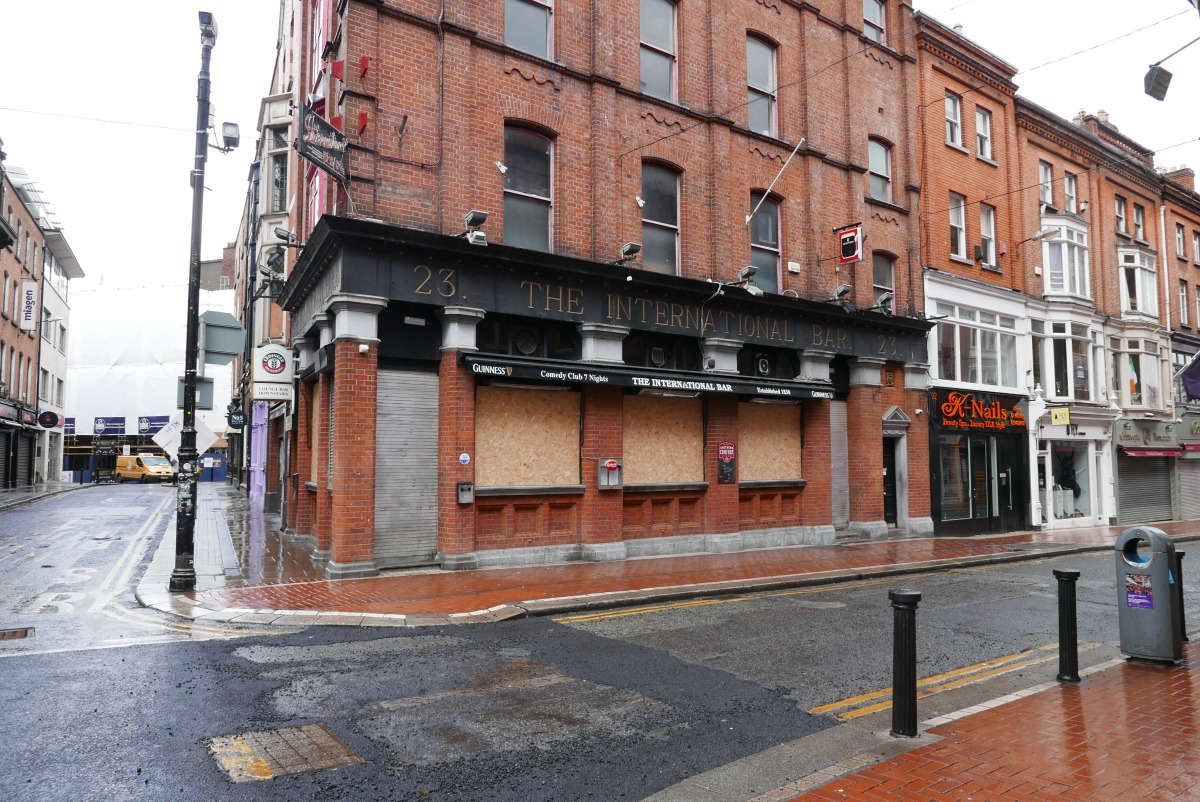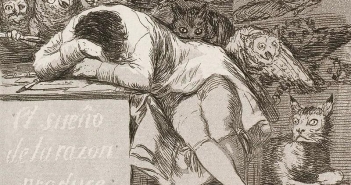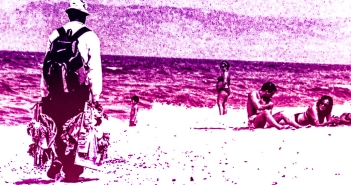The first thing that distinguishes a writer is that he is most alive when alone.
Martin Amis, in an interview with The Paris Review (1998)
The empty streets, quiet from dawn to dusk and beyond. No noisy, polluting rush hour traffic, or at any other time of the day. No shuffling, stifling crowds of commuters on packed public transport, or gaga revellers in sweaty pubs and clubs. Not having to go to work, and feeling okay about it because most everyone else was not obliged to either (there’s social solidarity, if ever I saw it). Getting a modest stipend from the government for staying at home. Being able to do whatever you wanted to all day long (within the law, and a five kilometre radius of your residence). If you were living alone or parenting alone you could even pair with one other household as part of a support bubble, and two households could meet outdoors within the travel limit. If you were a renter, no threat of imminent eviction by a rapacious or capricious landlord; if you had a mortgage, a temporary freeze on payments. In short, what utter bliss.
I was alive during lockdown, and I was alone – and although maybe ‘most alive’ is a stretch, I grew to love the sequestered state, to the extent that I still have not fully readjusted to things being ‘back to normal’. But it troubles me that perhaps ‘most alive’ is not quite the same thing as being good, or even happy. I liked lockdown: does that make me a bad person?
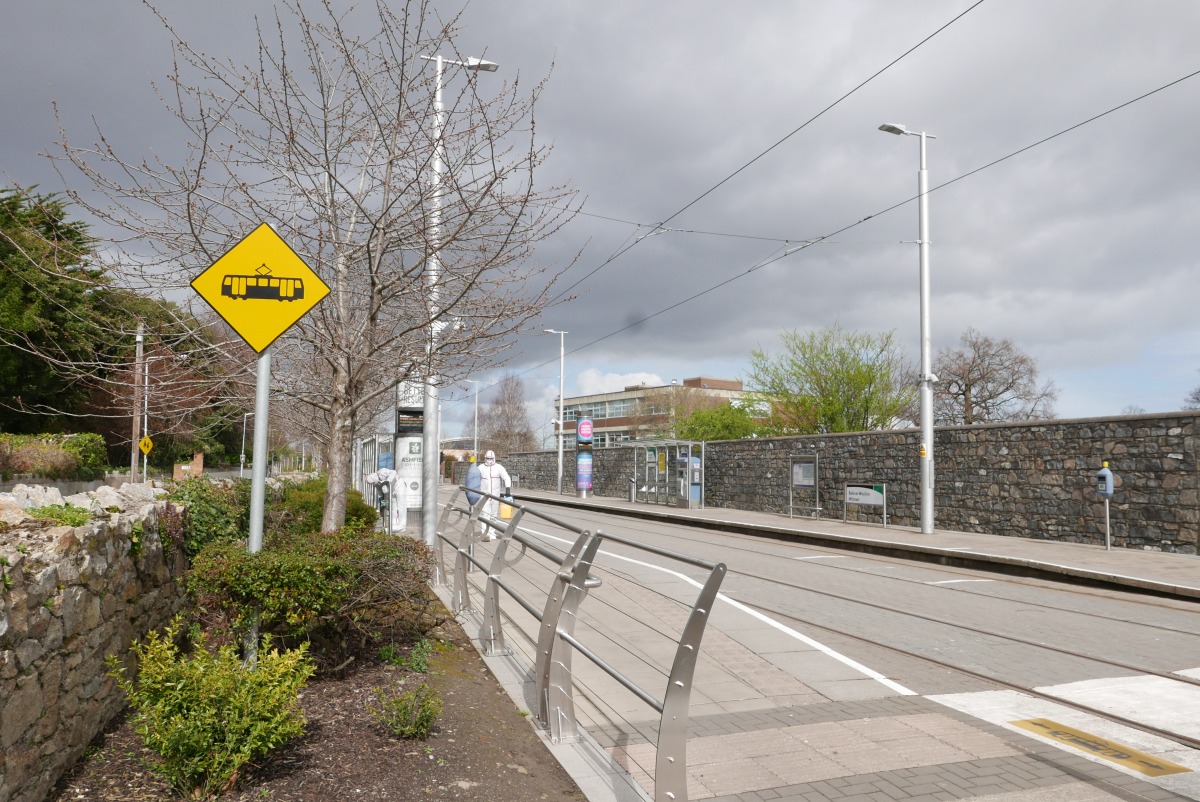
Dublin, April, 2020.
Of course it was bewildering at first, and a little frightening – because no one really knew how severe the pandemic might be, or for how long it could last. (Let’s get our priorities straight here: there was a run on toilet rolls.) But after a few weeks, we settled into it. What I missed most upon entering the altered reality: 1) being able to meet friends face-to-face in the flesh; 2) being able to experience the giddy, healing rush of live music I get from going to concerts; 3) being able to travel, if and when I wanted. But I soon adapted to the new dispensation. After all, we now have all these wonderful machines with screens to help us keep in touch with people electronically, if we feel the need for company without risking the possibility of infection. Plus, we can use them to purchase pretty much anything we might want, as long as we are in funds or have access to lines of credit, and have said items delivered directly to our doors, thus obviating the need to ever stir outside, whether we are permitted to or not.
I thought of Oceane in Tibor Fischer’s Voyage to The End of The Room (2003) (itself a riff on the antisocial aesthete Des Esseintes in J. K. Huysmans’s A Rebours (1884)); and, more recently, of the unnamed narrator of Ottessa Moshfegh’s My Year of Rest and Relaxation (2018): both protagonists who have, insofar as is practicable, retired from social interaction. I thought of many of Cormac McCarthy’s heroes – men invariably configured as some variation on the theme of first or last person on earth. Mainly, I thought of Kate in David Markson’s Wittgenstein’s Mistress (1988), who either is, or imagines herself to be, the last woman on earth. All in some way extend the trope, with its origins in science fiction, of the depopulated world, brought to perfection in the dirty metaphysics of J. G. Ballard’s best work. To put it more simply, as a reclusive friend once described his habitual living circumstances to me, it was ‘Howard Hughes without the money.’
Obviously, there were downsides. For a start, people were dying – often the poorest and oldest and most vulnerable in other ways. Then, some people still had to work, whether they wanted to or not, and not only health care professionals, but supermarket staff and take-away deliverers were deemed ‘essential’ or ‘key’ or ‘front line’ operatives – thus risking sickness and death for minimal reward. Yet others were acting like idiots, with their bizarre conspiracy theories and their deliberate flouting of restrictions. Personally, my greatest hassle was the way my eyeglasses steamed up every time I masked up.

Dublin, April, 2020.
But I was lucky: I had a house to myself with a garden, and a car and a bike and a fridge and a freezer, and a television and a hi-fi system and internet access, and I was mobile and could venture to shops when supplies ran low, or take long walks and cycles for exercise. Roaming around the Hellfire Club or the adjacent Massy’s Wood for hours on end, while listening to Éliane Radigue’s Trilogie de la Mort on the headphones, was a favourite pastime, if I felt the need to get out of the house and blow the cobwebs off – not something I would necessarily have done if I’d been working five days a week. Furthermore, I did not have any very youthful or very elderly dependents relying on me for their daily needs or morale-boosting support. Reports of domestic abuse among those living in cramped, overcrowded conditions circulated and increased steadily, and I pitied anyone trapped in a fraught, tension-filled environment. My nutjob survivalist’s instinct began to kick in.
I was alone because my wife had taken up a job abroad a few months pre-pandemic. When rumours of imminent lockdown first hit she had wanted to return home, but I managed to dissuade her. We had been going through an elongated rocky patch, and I reasoned that a) if forced isolation was short-lived, then it wasn’t worth her while uprooting herself all over again; and b) if having to stay indoors lasted for a longer time, then sooner or later we might well drive each other to distraction, if ensconced under the same roof for such a lengthy period. We were then trying to establish independent lives, and in retrospect I still feel my decision was the correct one – in as much as later we experienced a ‘Covid-bounce’ and were reconciled. Not that coming together again was a direct consequence of being apart, but being together under duress certainly wouldn’t have helped us in resolving our difficulties. Does anyone really need to be with a partner/lover every hour of every day? Each time I saw him/I couldn’t wait to see him again (‘Then He Kissed Me’ by The Crystals, 1963) is the stuff of teen anthems and first love. Constant companionship in a confined space may even be detrimental, if not wholly destructive, to a relationship. Or, at least, to one with me. Am I a bad person?
In Middlemarch (1872) George Eliot has her ‘godless’ heroine Dorothea Brooke suggest that if religion were actually true and God existed, and achieving eternal salvation (and avoiding a similarly enduring damnation) was our main priority, then we should all devote our whole lives to this pursuit as cloistered contemplatives, rather than just leaving it at attending church on Sunday and doing a few good works. One of the few modern-era Catholic writers I can read with pleasure and profit, the Trappist monk Thomas Merton (1915-1968), wrote in Thoughts in Solitude (1956): ‘We cannot see things in perspective until we cease to hug them to our bosom.’ He continues:
When society is made up of men who know no interior solitude it can no longer be held together by love: and consequently it is held together by a violent and abusive authority. But when men are violently deprived of the solitude and freedom which are their due, the society in which they live becomes putrid, it festers with servility, resentment and hate.
Still, not all of us can become Trappist monks, or opt to lead a comparably ascetic life. For one thing, belief in God, or some conception of divine transcendence, appears to be a necessary, if not quite sufficient, prerequisite. For another, the need for sex, or even the search for secular love, does require one to be ‘out there’, however nominally. As my wife once opined, ‘You should have been a monk – except you like sex too much.’ Not that a vow of celibacy is always mandatory for the anchoritic life, or acts as an insuperable impediment to a long withdrawal – at any rate not nowadays, and not outside of the western tradition. For example, it is on record that the flexible arrangements surrounding Leonard Cohen’s five year stint living at the Mount Baldy Buddhist retreat centre, where he was given the name ‘Jikan’, meaning ‘Silence’, did not preclude female callers, or indeed boozing marathons with his Zen Master teacher, Old Roshi. But he was Leonard Cohen, not your average seeker after enlightenment, and Mount Baldy is located outside L.A., not Kyoto, so exceptions were made and such privileges extended.
But even setting aside the vagaries of libidinal desire, ultimately I think monastic life, which for many people lockdown could be said to have resembled, would be too social for me, certainly in its Cenobitic, or community form, if not in its Eremitic, or solitary practice. I like doing things – eating, sleeping, writing, reading – when I feel like doing them, rather than adhering to a strict schedule with other devotees. Interestingly, the Trappists, who are an essentially cenobitical order (in contrast to, say, the enclosed Carthusians), maintain a custom under which individual monks or nuns who have reached a required level of maturity within the community may pursue a hermitical lifestyle on monastery grounds under the supervision of the abbot or abbess. Merton was one such allowed to undertake this mode of living. Yet even then he fell into an earthly love, with Margie Smith, a student nurse assigned to his care while he was recuperating in a Louisville hospital from surgery he underwent in April 1966, to treat debilitating back pain. She was twenty-five, petite and demure; he was fifty-one, stocky and bald, with a wandering intellect and a boisterous laugh. Although in several diary entries (see Learning to Love: Exploring Solitude and Freedom, The Journals of Thomas Merton, Volume Six: 1966-67) he expressly denies sexual consummation, on July 12th he wrote:
Yet there is no question I love her deeply … I keep remembering her body, her nakedness, the day at Wygal’s (the office of his psychologist, which he ‘borrowed’ for a tryst on June 11th – the diary entry for which day notes that they shared a bottle of champagne), and it haunts me … I could have been enslaved to the need for her body after all.
A previous entry for June 14th notes his discussions with his abbot about this affair, and his intent to follow the instruction to end it. When he did, he still remained in occasional contact with Margie, and some recent Merton scholars have even argued that the monk regretted giving her up so much, and was so remorseful that she had married someone else (a doctor in Ohio, with whom she raised three sons), that he no longer felt life was worth living.
Also, incidentally, according to The Seven Storey Mountain (1948) the youthful Merton loved jazz, but by the time he began his first teaching job he had forsaken all but ‘peaceful’ music. Later in life, whenever he was permitted to leave the Abbey of Our Lady of Gethsemani, Kentucky, for medical or monastic reasons, he would catch what live jazz he could, in Louisville or New York. So maybe there is hope for me yet, to entertain a life of socially sanctioned solitude (with sporadic forays to musical events) – although I fear I would not take kindly to that clerical ‘supervision’.
More to the point: I am not under thirty, or even under forty – so I would not expect those in that demographic, who are eagerly trying to establish relationships and careers and lives, to share my guarded enthusiasm for society grinding to a halt, or for taking a lifelong holiday from it. I have managed to attain some perspective on matters carnal, and on those of the heart (not to mention on my fluctuating sources of income) – even if this equanimity is, I suspect, largely hormonally determined, rather than an intellectual or emotional insight. Having said that, while I may still be partial to the odd ride, much less to a touch of romance, it was not impossible to hook up during lockdown, with a little technological aid, and within certain geographical limitations. Much like ordinary times.
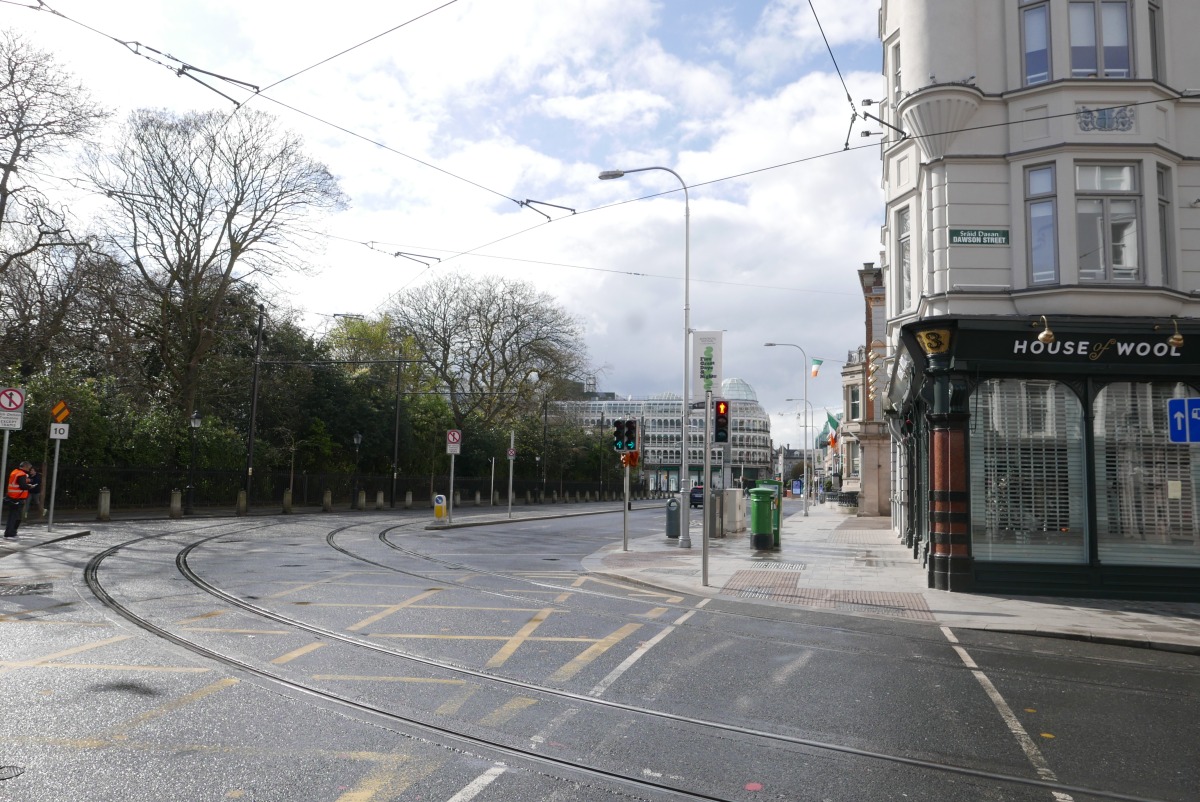
Dublin, April, 2020.
Naturally, I reread Albert Camus’ The Plague (1947) during the time of Covid, like many others. For, whether the surge in its popularity consisted chiefly of first-timers or revisitors, in this activity I was hardly alone, as publishers reported a huge worldwide increase in sales of the novel, once the virus had taken hold. Figures for the English translation went up by 150% in the last week of February 2020 as compared with the same period in the preceding year, while the original French version rose in number by a staggering 300%. (Boccaccio’s Decameron (1348-1353) and Defoe’s Journal Of The Plague Year (1722) enjoyed similar stupendous bumps up the charts, courtesy of the reading public.)
What I discovered about The Plague was that it could have been written yesterday. So accurately did its descriptions of how individuals, and the general populace, behave in Oran during that escalating crisis chime with contemporary events, many passages could have been culled from the newspaper headlines and news bulletins of 2020-21. Which tends to make one despair of human nature, and embrace the cliché that it doesn’t change much. Here are three choice snippets, in case you didn’t get around to it this time:
- ‘There have been as many plagues in the history of the world as there have been wars; yet always plagues and wars find people equally unprepared.’
- ‘How should they have given a thought to anything like plague, which rules out any future, cancels journeys, silences the exchange of views? They fancied themselves free, and no one will ever be free so long as there are pestilences.’
- ‘The truth is that nothing is less sensational than pestilence, and by reason of their very duration great misfortunes are monotonous.’
Compiling lists was something else which really caught on, and if you hunt around the internet you will turn up the catalogues of my favourite novels, favourite albums, favourite films, worst jobs, and all that. Everyone started baking sourdough or banana bread, and posting photos of the results on social media, me included. If it hadn’t been for lockdown, I doubt I’d have got through nearly every one of the over twenty films directed by the prolific Sion Sono (the Japanese David Lynch), or worked my way through as many of The Guardian’s ‘Top 20 J-horror films – ranked!’ as I could find, or rewatched all of Michael Haneke’s filmography in chronological order, or lapped up the entire boxset of The Wire for the third time (which I would gladly do again), or discovered the best of Dario Argento (and what, really, had been so important in my previous life as to account for this grievous omission?). I played online chess with a couple of musician acquaintances, and some anonymous randomers (happy to report that my game improved exponentially). I even recorded my versions of every song on Bob Dylan’s Blood On The Tracks (1974) and had the temerity to upload the attempts to YouTube.
All of which prompts the question: what had we all been doing with ourselves before the plague descended?
Mainly, lockdown was a boon for me because I started writing again, having lost my way – aside from journalism and reviews – for a number of years. But this time it was not fiction, as previously, but rather essays, akin to this one. Martin Amis is not alone among writers when, in the epigraph to this piece, he expresses the tribe’s preference for solitude. Here’s James Baldwin, writing in ‘The Creative Process’ (1962): ‘The primary distinction of the artist is that he must actively cultivate that state which most men, necessarily, must avoid: the state of being alone.’ It’s almost enough to convince you that seclusion is an indispensable component of creation (although theatre, film, music and dance are clearly collaborative arts – and even desk-bound writers engage with agents, editors and publishers). But, perhaps in common with painters more than any other arts practitioners, writers live in their heads, and are solipsists par excellence. The interior world of imagination is always more stimulating to them than what Roland Barthes referred to dismissively as ‘The trivial kitchenry of doing.’ As for living, our servants can do that for us – if only we had servants.
When I first had notions of becoming a writer, one of the most appealing aspects of the calling was the option of anonymity: like J. D. Salinger or Thomas Pynchon, you could be famous, or let’s say influential, without anyone recognising you in the street or bothering you in public. Nowadays, however, one has to be ready to be interviewed at the drop of a hat, and take a strenuous part in one’s own publicity campaign (“What? No social media presence?”). One is also expected to become a member of ‘the writing community’ – whatever that is, and wherever it lives. So many of today’s writers spend so much of their time being on television and radio and going to literature festivals – in other words, promoting themselves and their work – that it is difficult to imagine how and when and where they ever manage to get any writing done. You might as well be in a touring rock band. (And when do they do their songwriting? At soundchecks? In hotel rooms? In the recording studio? I suppose they are not on the road all the time – but since the digitalisation and free filesharing of music, needs must to make a living, which means playing live and selling merch.)
In more recent years – primarily due to the ubiquity of television and the rise of the internet – writers have at times been presented – many of them willingly – as another type of media celebrity. Yet, in the not so distant past it was still quite difficult to reach an author from outside the circuit of the publishing world. Writers used to be identified mostly through their written work, and it was the norm for a reader to be aware of an author, to like or even love their work, and continue to be fully ignorant of their physical appearance, and also unaware of most of the biographical information that now is routinely accessed. One could scarcely imagine Franz Kafka or Fernando Pessoa giving an interview. Indeed, it is legitimate to question if individuals with such reclusive personalities would, in today’s climate, be offered a publishing deal at all.
Publishing is a business, and a publishing house is unlikely to invest in a writer’s work if it stands to lose money, or to not make very much (unless a few hugely commercially viable wordsmiths subsidise all the ne’er-do-wells). Yet writers are, arguably, very different from performers of popular entertainment. In practice, of course, not many authors differ significantly from performance artists, and what they say on stage is at least as vital to their process as what they write on the page. But to bring about an increase in links between the two activities, whether intentionally or unwittingly, will certainly result in fewer published authors who are characterised by acute introversion.
Now, it may be argued that the attraction of retreating inside a Proustian cork-lined study to do one’s writing means that the work produced will have a very narrow focus, and that you will have fewer stories to tell, except the ones about yourself. Such confinement implies that your daily ‘life experience’ will be extraordinarily circumscribed. However, in my opinion, most people have more than enough ‘life experience’ by the time they are twenty-five or thirty to be going on with for the remainder of their lives. If, indeed, life experience is really a requirement for writing well at all, especially in comparison with the transformative power of the imagination – for those who have one. That ‘smiling public man’, Senator W. B. Yeats, in ‘The Fascination of What’s Difficult’ (1912), bemoaned the distracting vicissitudes of ‘Theatre business, management of men’ which he had earlier so eagerly embraced, and also elsewhere wrote ‘Why should we honour those that die upon the field of battle? A man may show as reckless a courage in entering into the abyss of himself.’ Or, as has been remarked with reference to Jorge Luis Borges: ‘A man may lead an exciting life without ever leaving his desk.’
(Note to television and radio producers, and festival organisers: I am now available for any interviews or promotional junkets going, and I promise to wax eloquent about the topic of this essay, or any other subjects about which I have written.)
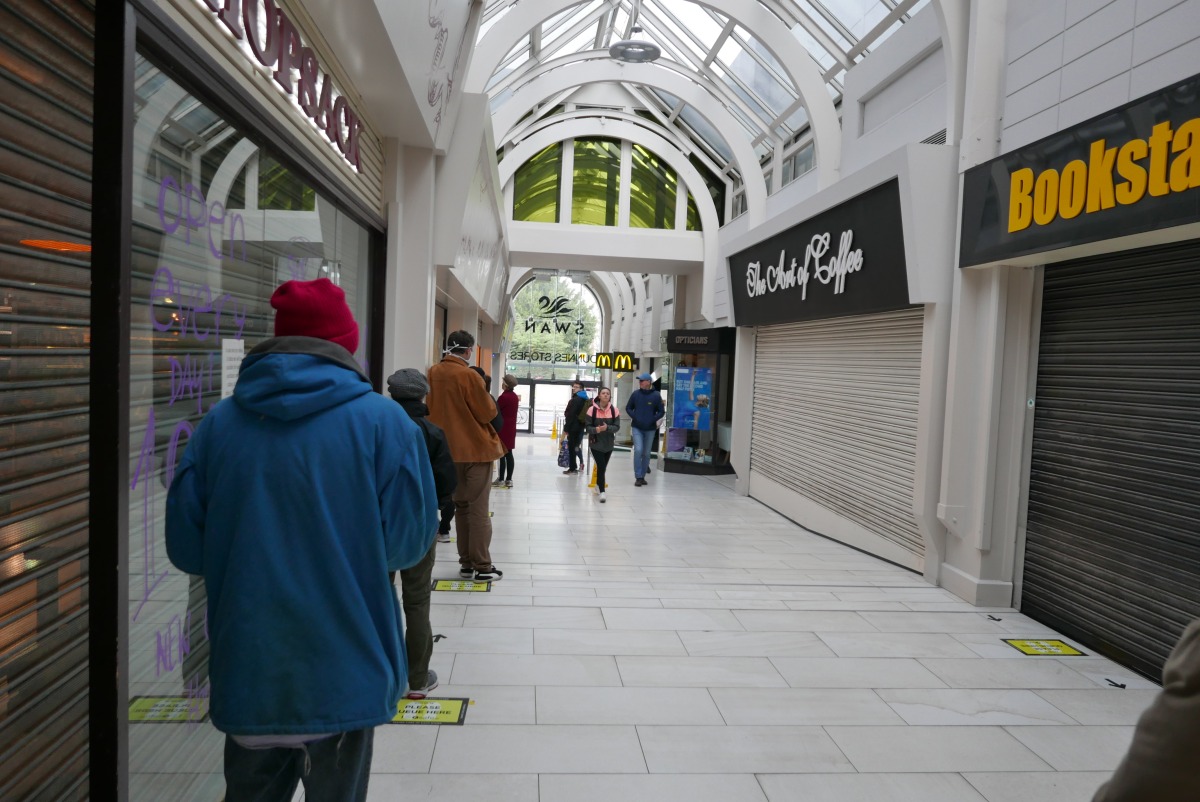
Dublin, April, 2020.
Does much of the foregoing sound like plain old misanthropy? I do not regard myself as overly misanthropic, even if I have a low opinion of much of the human race. I still like the people I like, and like them a lot. It’s when people organise themselves into groups that my suspicions are raised. As Jonathan Swift wrote, in a letter to Alexander Pope, ‘I have ever hated all nations, professions, and communities, and all my love is toward individuals.’ Doubtless the proponents of wellness fads, and associated quackery, will diagnose me as ‘anti-social’, and conclude that I ‘lack empathy’. Not so. If anything, I’m more asocial than anti-social, and I can have oodles of empathy, when I want. Granted, maybe I should ‘want’ more. However, I do not place quite so high a value on empathy as an attribute as the esteem with which it is held in the current discourse appears to require. Too much empathy can get you into all sorts of bother.
Nor am I agoraphobic (from Ancient Greek ἀγορά, meaning ‘an assembly of the People’, or ‘a marketplace’ (the typical spot for such an assembly); and φόβος, meaning ‘fear’) – although I do have a problem with ‘the market’ as a determinant of value, and therefore fear it. People who had known me in a previous life might even have described me as a bon vivant or man about town, such was my propensity for attending live artistic happenings, chiefly concerts. (In fact, there are those who would say that I have only two settings when it comes to my preferred mode of being: the quiet fragility of tremulous silence, or the overpowering loudness of raucousness sound. Signal to noise ratio.) However – and I don’t know if it is attributable to incipient old age, or whether it has been accelerated by quarantine – I now no longer need to be out all the time. Maybe I had always been a potential hermit, who simply lacked the courage of his convictions. Still, it’s quite a momentous revelation when you realise that you could get used to being content enough never seeing anyone for the rest of your life. ‘Man is a social animal’ Aristotle tells us in his Politics. ‘Virtue is social’ admonishes a voice in Philip Larkin’s astute poem on this theme, ‘Vers de Société’. Yet there is such a creature as a gregarious recluse, however paradoxical that might sound. Lots of animals hibernate for winter: why can’t homo sapiens (wise man!) do it for three or four months annually, if not for the whole year? But what of the need for company and companionship, if only to stave off the loneliness? The answer to this objection is that being alone and feeling lonely are two entirely different conditions. Some people feel lonely at the heart of a crowd of people; others are at peace staring at the stars by themselves.
So, am I a bad person? Not really, although I may concede to selfishness. But all artists are selfish, or certainly no more or less so than the majority of the rest of humankind. There are fully socialised reasons for being selfish, just as there exist selfish reasons for being social. How bad a person does selfishness make you?
I repeat: am I a bad person? No, I’m just an introvert – and there is nothing wrong with that. (Note to self: future essay comparing the relative merits and demerits of introversion and extroversion.)
Mostly, I can’t be bothered arguing and debating with people much anymore. I mean, I kind of like it, sometimes, when it takes place at a level I consider ‘intelligent and informed’, but most discussion, it seems to me, exists at a standard that makes it hardly worth talking about or engaging in, and amounts to nothing more than people repeating their opinions and beliefs at each other at contrasting pitches. I guess this view makes me a snob, and of the worst kind – an ‘intellectual’ one. But really, as is in the nature of friendship, I like being with people who agree with or broadly share my worldview, and I get irritated being around people who are coming from the opposite end of the religious or political or literary or whatever spectrum. Perhaps that is my great character flaw; but it’s tiring, to the point of exhaustion, always being called on to defend yourself. And yet, it is ingrained that we can only change things (or maintain the status quo) through exchange of ideas in a public forum. That’s how much vaunted democracy, such as it is, functions. However, as far as I can make out, people who talk too much have nothing much to say. Or, at least, one has to put in quite a shift to discern what it is they are actually trying to express. Talk is cheap. A still tongue in a wise head. Have we gleaned nothing from Wittgenstein’s dictum: ‘Whereof we cannot speak, thereof we must be silent’? Or have we not heard the sagacious Borges’ counsel: ‘Don’t talk unless you can improve the silence’?
But even I am human. I have slowly crept back to attending gigs, going to the cinema and theatre, meeting friends, even going to parties, and making a couple of journeys abroad – although I did suffer from Covid-hesitancy at first. The intensity of crazed moshing at black midi in Vicar Street was disconcerting, as was the surprise that Mitski Miyawaki had morphed from being an act with a relatively mature audience of twenty and thirty-somethings to a TikTok sensation for fifteen-year-old girls queueing around the corner at the same venue, before it opened its evening doors. In both cases, I forsook my usual front row vantage point, and retreated to the back of the hall.
I have noticed a greater than usual degree of incompetence on my part, in almost every piece of daily business that I do. Nothing feels the same as it did, in The Before Times. When you step off the carousel, you are not sure you want to get back on again – finally acknowledging that it may have really been a treadmill all along. I returned to work, because I had to, but more than ever before was plagued (apologies) by the nagging question ‘What am I doing?’ (with my time, with my life, with my endless numbered days), asked with an existential weight that was spirit-crushing. It was back to the small talk, or as its components are also called, pleasantries. Some colleagues were in agreement with me that we have all become ‘a little more Zen’, post-hiatus. Although there is an underlying apprehension that we are just dazed and confused zombies. After all, how could we tell the difference?
Inevitably, and in spite of obeying all official directives and taking all reasonable precautions, I contracted the plague myself, having successfully dodged it for over two years. The perils of being out and about, mixing with the throng, instead of sheltering safely at home. I may even have picked up some form of Long Covid, given my occasional breathlessness and sudden bouts of tiredness, and general brain fog and word soup. What is all this mad rushing around for?
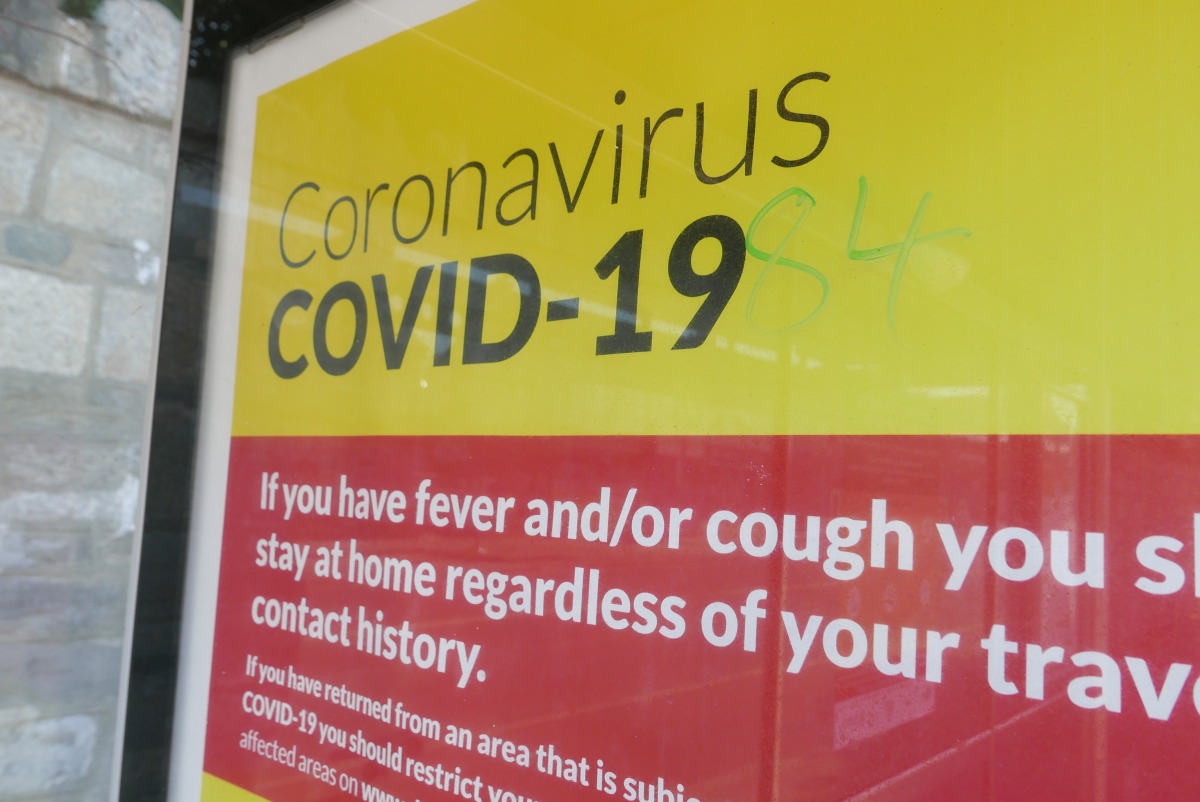
Dublin, June, 2020.
The most disappointing thing about the easing of lockdown is that it seems, both individually and as a society, that we have learned nothing from the experience. We are still pursuing the mythic chimera of endless economic ‘progress’; we are still subjecting ourselves, or being subjected to, lives of pointless wage-slavery; we are still pillaging the planet’s natural resources for short-term solutions and private gain. We still have not learned that we are not landlords here on earth. We are not even tenants. We are guests, just passing through. At the time of our leave-taking, wouldn’t it be preferable to know that we had made things a little better, or at least no worse, for all present and all of those to come, rather than just making sure that we took as much of the world’s bounty as we could get for ourselves and our own, and had as a good time as possible while doing so, at the expense of others?
Maybe I did not feel ‘most alive’ during lockdown, but I do feel ‘most alive’ when writing, and lockdown facilitated me towards that end. Therefore, it was one of the happiest times of my life, and it is little wonder that I harbour residual nostalgia for those halcyon days. In fact, it is tempting to declare: that’s what life should be. In ‘The Choice’ (1933), Yeats tells us ‘The intellect of man is forced to choose/Perfection of the life, or of the work.’ In response, Derek Mahon takes issue with this high-flown assertion, in ‘Knut Hamsun in Old Age’ (1980):
One fortunate in both would have us choose
“Perfection of the life or of the work.”
Nonsense, you work best on a full stomach
As everybody over thirty knows –
For who, unbreakfasted, will love the lark?
Prepare your protein-fed epiphanies,
Your heavenly mansions blazing in the dark.
So, should I get out more? No, not if going out means writing less – which, in my case, it usually does. ‘No man is an island’ averred John Donne, in a phrase which that mischievous mystic Merton referenced when he took it as the title for one of his finest essay collections. Alas, just as it is not given to everyone to be a monk, not all of us are writers or artists. My only hope garnered from lockdown is that I can retain the writerly momentum I gained during it, now that the world has opened its doors and windows once again, and everything is returning to a not-so-very-new ‘normal’.
Feature Image: Dublin, April, 2020.

